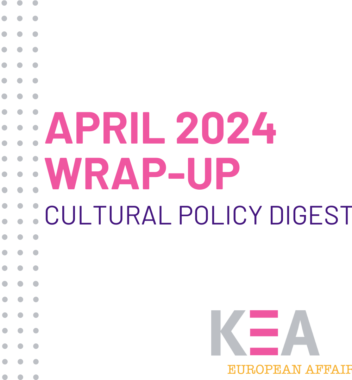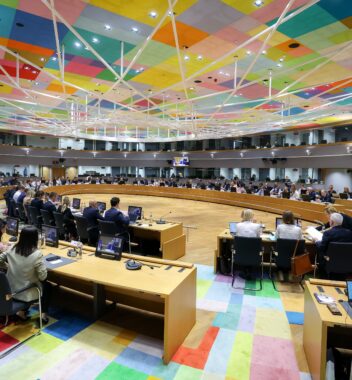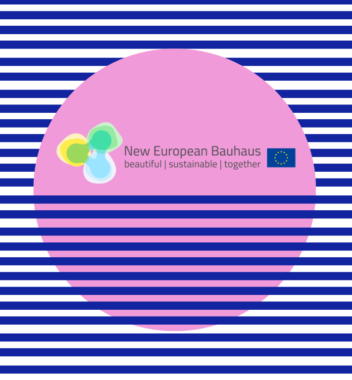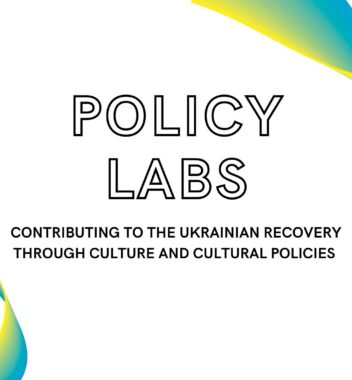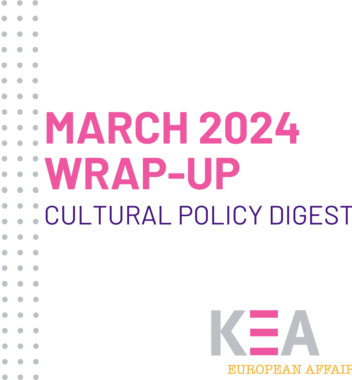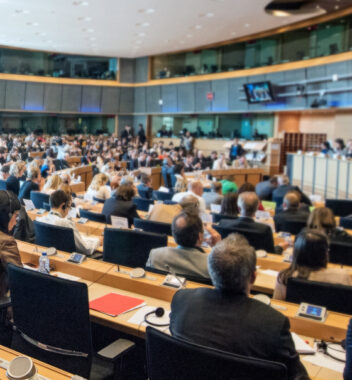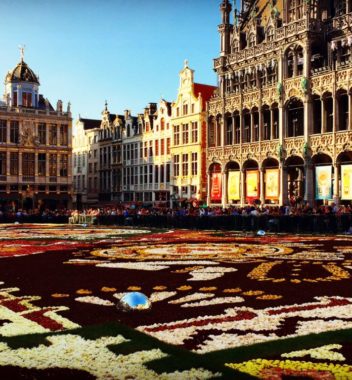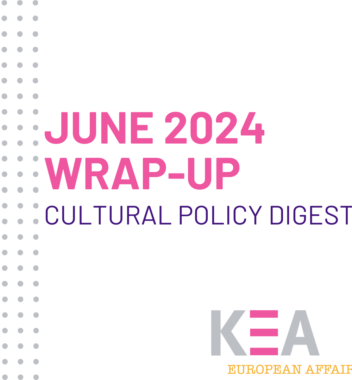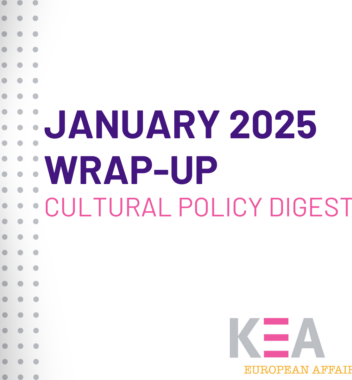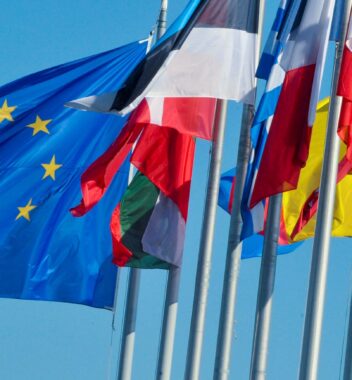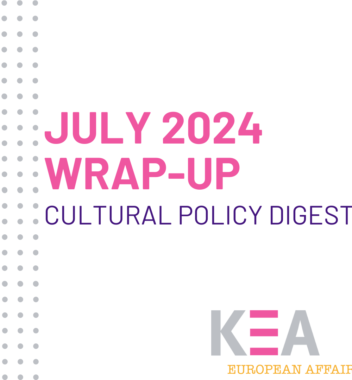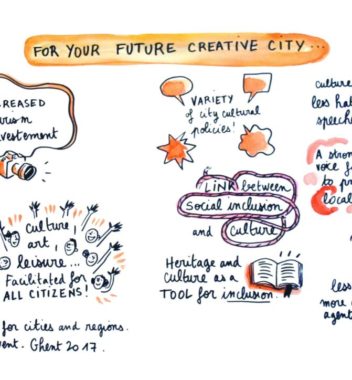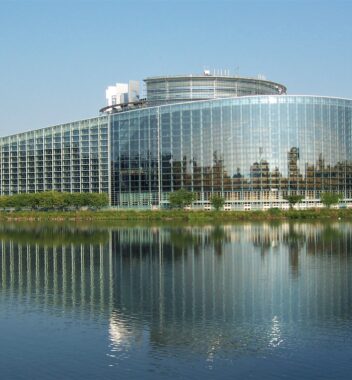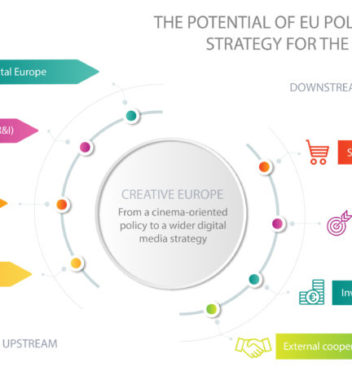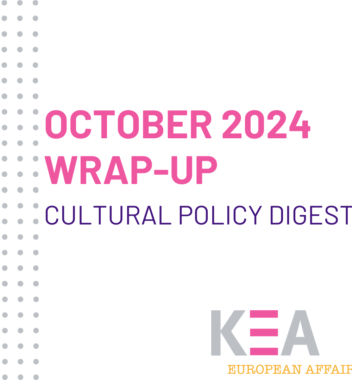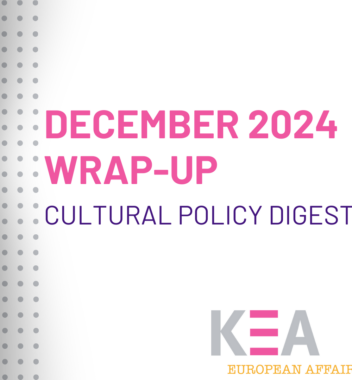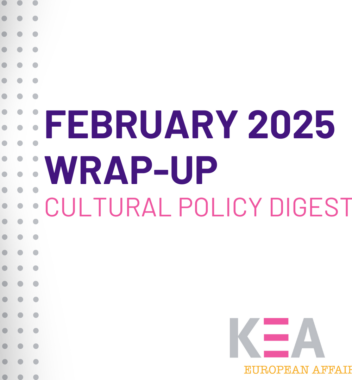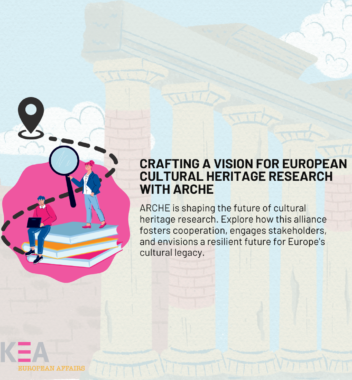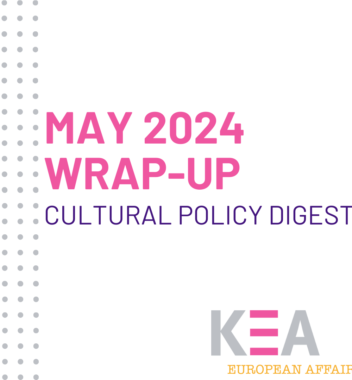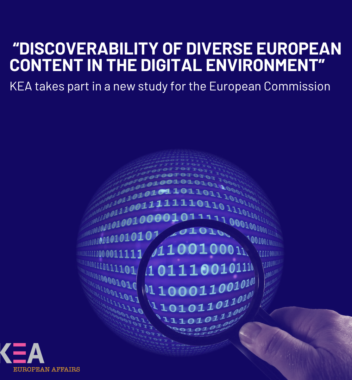
September was marked by significant developments at both European and global level. From the presentation of a comprehensive study on the EU’s cultural and creative sectors to the G7 Culture Ministers’ Naples Declaration and the United Nations’ groundbreaking “Pact for the Future”, which recognizes the role of culture in sustainable development, these initiatives are shaping the future trajectory of culture as a driver of social change. In addition, the appointment of a new EU Commissioner for Culture and an important policy brief on AI and virtual worlds highlight the evolving intersections between technology, competition and the cultural sector.
EU Culture and Creative Sectors: Study overview and future policy directions
The study offers an in-depth analysis of the European Union’s cultural policy developments while also identifying key challenges and opportunities for the future. It underscores the EU’s important role in complementing Member States’ efforts in promoting cooperation and fostering actions in artistic, literary, and audiovisual sectors, as enshrined in the Treaty on the Functioning of the European Union (TFEU).
Over the course of the previous legislative term, the CCS encountered significant challenges due to both systemic transformations and external crises, including the COVID-19 pandemic and the conflict in Ukraine. These events placed considerable strain on the CCS, requiring urgent interventions, particularly to support Ukraine’s CCS amidst warfare. Concurrently, long-standing structural issues, such as precarious working conditions, the regulatory impact of the digital environment, and the sector’s alignment with the green transition, demanded sustained policy attention. In response, the EU introduced key legislative instruments, such as the Audiovisual Media Services Directive (AVMSD), the Digital Services Act (DSA), and the Digital Markets Act (DMA), which played pivotal roles in ensuring media pluralism and a fairer digital marketplace.
The study acknowledges that, while EU strategic frameworks—such as the New European Agenda for Culture—have increasingly recognized the CCS’s role in promoting well-being, innovation, and sustainable development, there remain notable gaps in fully integrating the CCS into the broader EU policy agenda. Despite the sector’s demonstrated capacity to drive societal transformation, the 2024-2029 strategic agenda overlooks the potential contributions of the CCS in addressing EU priorities. This is seen as a missed opportunity to more strategically embed the sector within the European project.
Several structural obstacles, referred to as “weights of the past,” continue to impede the CCS from realizing its full potential. These include a reliance on short-term project funding, economic precarity among CCS professionals, limited inclusion of the sector within innovation systems, and a lack of spaces that facilitate cross-sectoral collaboration. Furthermore, technological advancements—particularly the rise of artificial intelligence—have posed new challenges, fundamentally altering the landscape of artistic creation and cultural interactions.
Looking ahead to the 2024-2029 parliamentary term, the study identifies four key areas for policy development aimed at enhancing the CCS’s role in European transformation:
-
– Investing in the CCS to drive societal change: this includes recognizing the power of artistic expression and storytelling in promoting societal change and embedding these elements more systematically into EU policy frameworks. Enhancing cross-sectoral cooperation is essential to fully harness the sector’s potential.
-
– Updating CCS ecosystems for sustainability and resilience: ensuring that CCS professionals have access to sustainable funding, fair working conditions, and adequate recognition is vital to fostering a resilient sector capable of contributing to the EU’s sustainability objectives.
-
– Fostering safe spaces for cultural interaction: the study highlights the need to create and protect safe spaces—both physical and digital—that enable cultural dialogue and artistic creation. The rise of digital and hybrid environments presents new opportunities but also challenges, such as access barriers and digital aggression.
-
– Strengthening cooperative governance: the study calls for greater horizontal governance between EU institutions and multilevel governance with external partners. Improved coordination will help overcome policy silos, optimize financial resources, and increase the visibility and impact of EU CCS policies.
In conclusion, the study asserts that addressing these areas is crucial for ensuring that the CCS can fully contribute to the EU’s overarching goals of fostering a vibrant, inclusive, and sustainable Europe. Failing to strategically integrate the CCS into the EU’s future policy agenda risks underutilizing the sector’s transformative potential within the European project. After the presentation, CULT Members had the chance to ask questions. This exchange resulted in a stimulating debate between the Members and the presenters. You can access the recording session here.
G7 Ministers of Culture: Naples Declaration highlights Culture as global public good
From September 19 to 21, 2024, the G7 Ministers of Culture convened in Naples under the leadership of Italy’s Minister of Culture, Alessandro Giuli, to discuss the role of culture as a global public good and its importance in fostering sustainable development. The meeting culminated in the adoption of the Naples Declaration of Culture Ministries, officially titled the “Ministerial Declaration: Culture, Common Good of Humanity, Common Responsibility.” The document emphasizes the fundamental role of culture in shaping national identities, promoting democratic values, and fostering social cohesion, while also addressing the contemporary threats and challenges to cultural heritage.
One of the central themes of the Naples Declaration was the need to safeguard culture against modern threats, including climate change, the illicit trafficking of cultural goods, armed conflict, copyright violations, and censorship. Of particular concern is the destruction of cultural heritage due to conflict, with a strong focus on the ongoing war in Ukraine. The declaration stresses the need for collaborative global efforts to regenerate Ukrainian culture and restore its damaged cultural assets in the aftermath of Russia’s war of aggression.
The Ministers acknowledged culture’s ability to counteract violence, extremism, and societal divisions, promoting a message of cultural preservation as essential to protecting democratic freedoms such as pluralism and freedom of expression. The declaration reinforces the concept of culture as not only a public good but also a key driver of sustainable development and civic education. It highlights the role of cultural heritage, both tangible and intangible, as a cornerstone of identity and a powerful means of fostering mutual respect and integration within and across communities.
In line with Italy’s G7 Presidency, the Ministers underscored the necessity of joint action to protect cultural and linguistic identities in the digital age. The declaration addresses the impact of technological advancements, particularly artificial intelligence, on culture and creativity, recognizing both the opportunities and challenges posed by these developments. It also calls for enhanced efforts to combat the global issue of illicit trafficking of cultural goods, especially through stronger international cooperation.
The G7 meeting also focused on building partnerships with emerging economies, particularly in Africa, recognizing the growing demand for support in training and capacity building in the cultural sectors of these regions. The declaration highlighted the importance of empowering African nations to leverage their rich cultural resources for sustainable development, economic growth, and job creation.
New Commissioner for Culture: Mission letter and key priorities for 2024-2029
On 17th of September 2024, Commission President Ursula von der Leyen announced the next College of Commissioners. The 27 candidates, each from a different EU country, have just received their mission letters from the President. These public letters contain guidelines for the Commissioners to-be and show the path that von der Leyen envisions for Europe. Maltese Glenn Micallef is the envisioned Commissioner for Intergenerational Youth, Culture and Sport. Micallef has a background in working on cultural affairs in Malta, with some of his past involvements including supporting the Charter on the Status of the Artist and advancing tax breaks for artists.
Before his nomination becomes official, Micallef will have to defend his candidature in front of the European Parliament. If approved by, some of his key priorities will be to develop a new strategic policy approach to culture, based on a ‘Culture Compass’, to develop AI strategies for the CCSs and to improve the working conditions of artists and cultural professionals. Last week, we published an analysis of the mission letter, find more information here.
UN’s Pact for the Future recognizes culture as key to sustainable development
On September 22, 2024, at the Summit of the Future, the United Nations General Assembly took a historic step by adopting the Pact for the Future, which officially acknowledges culture as an essential component in achieving sustainable development goals (SDGs). This marks a significant victory for cultural organizations and advocates who had long sought the inclusion of culture in global governance frameworks.
This important document included the adoption of a Global Digital Compact, and the Declaration on Future Generations. The Pact addresses some of the most critical topics of our times, such as sustainable development, development financing, international peace and security, science, technology and innovation, digital cooperation, and youth and future generations. It also calls for the transformation of global governance to meet these critical challenges, and provides concrete actions needed to achieve the proposed goals.
Importantly, it includes a dedicated focus on culture through Action 11, which emphasizes the role of culture and sport in fostering identity, social cohesion, and well-being. This inclusion follows key milestones, such as UNESCO’s MONDIACULT 2022 conference and recent cultural policy declarations from G7 and G20 nations. Since earlier this year, cultural organizations advocated for the topic particularly through the Culture2030Goal campaign.
The Pact for the Future recognizes that culture, in its broadest sense—encompassing natural and cultural heritage, arts, creative industries, and knowledge systems—plays a crucial role in the cohesion and transformation of societies. UNESCO Director-General Audrey Azoulay hailed this development as a turning point, stating that the decision to place culture at the heart of the world’s response to the strategic challenges of the 21st century is a result of years of dedicated multilateral dialogue. She emphasized that this recognition must lead to a concerted effort to establish culture as a fully integrated objective within the UN’s sustainable development agenda by 2030.
Building on the momentum generated by the Pact for the Future, the Cultural sectors will continue to drive the agenda forward, with the next milestone being the MONDIACULT 2025 conference in Barcelona.
AI and virtual worlds: policy brief from DG CNECT
The European Commission’s Directorate-General for Communications Networks, Content and Technology has published a policy brief on competition in generative AI and virtual worlds, focusing on market trends, entry barriers, and potential anticompetitive concerns. The brief highlights how these rapidly evolving technologies are expected to have a transformative impact on various industries, including the CCS.
The paper emphasizes the potential for anticompetitive behavior, particularly in areas such as access to key inputs like data, AI hardware, computing infrastructure, and cloud capacity. To address these risks, the brief outlines tools like antitrust enforcement, merger control, and the Digital Markets Act (DMA) to ensure these sectors remain competitive and open to new entrants.
Given that AI’s integration into the CCS is a priority for the EU, this policy brief signals the Commission’s proactive approach to monitoring and regulating these technologies as they continue to reshape markets, ensuring fair competition and innovation.
